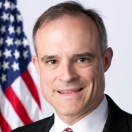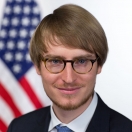
Across his Administration, President Obama has taken bold steps advancing a digital environment that rewards innovation and empowers individuals the world over. These ideas, and the policies that support them, are cornerstones of America’s economy. But the benefits from this approach extend well beyond the United States; they are equally important to the social and economic wellbeing of Internet users across the globe. This is why the United States is strongly represented at the World Conference on International Telecommunications (WCIT) treaty conference in Dubai this month, where over 100 delegates from the public sector, private sector, and civil society are joining with our international partners to ensure the future of global, interoperable telecommunications networks.
Several White House officials were on hand for the Conference’s opening days, where the hosts in the United Arab Emirates welcomed delegates and took some positive steps to address concerns the Conference be accessible to those outside its halls. As a crossroads in the interconnected global economy, Dubai is a natural venue to bring together the diversity of voices and views at the WCIT.
From the start, the U.S. position has been clear: the WCIT should be about updating a public telecommunications treaty to reflect today’s market-based realities — not a new venue to create regulations on the Internet, private networks, or the data flowing across them.
Today, over 85 percent of the world has access to mobile phones because of modern, competitive marketplaces. And while much is left to be done connecting more to this digital future, the solution is not counterproductive regulation at the national or international level. By supporting principles that expand telecommunications infrastructure to underserved and developing populations, the WCIT can play a valuable role in ensuring technological innovation continues for the benefit of all.
But we should not confuse telecommunications infrastructure with the information that traverses it. The global consensus for a free and open Internet is overwhelming. Millions in the United States and around the world have already added their voices to this conversation, and their position is clear: they do not want the WCIT to govern the Internet or legitimize more state control over online content. Our Administration could not agree more – and will not support a treaty that sets that kind of precedent.
That position unites our Administration, industry, civil society, both parties and houses of Congress, and stakeholders around the world. Communications technologies and the Internet are essential to economic growth and global prosperity. The world deserves a WCIT outcome that delivers more connectivity without undue regulations. The United States will remain a fierce advocate for those principles at the Conference, and beyond.
Michael Daniel is Special Assistant to the President and Cybersecurity Coordinator; R. David Edelman is Senior Advisor for Internet Policy andTom Power is U.S. Deputy Chief Technology Officer for Telecommunications



